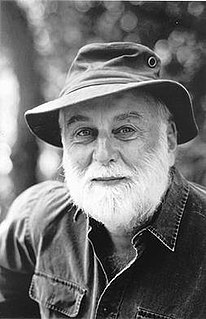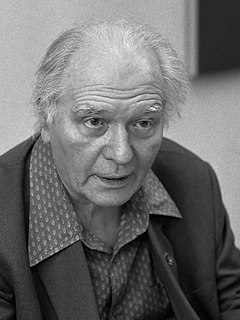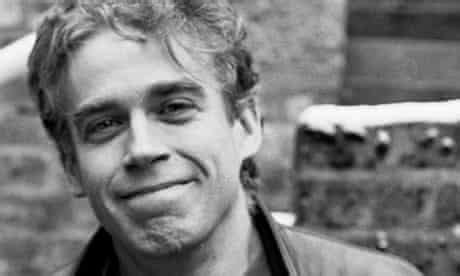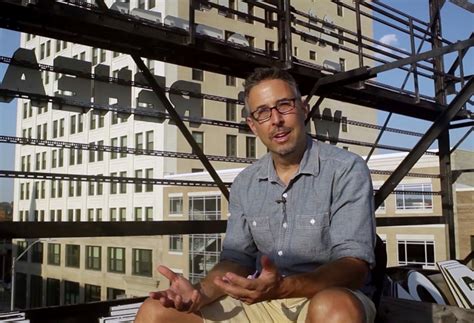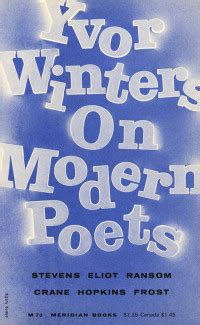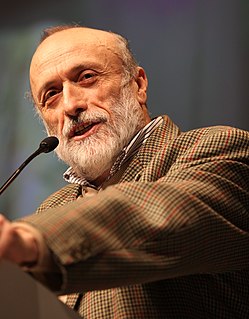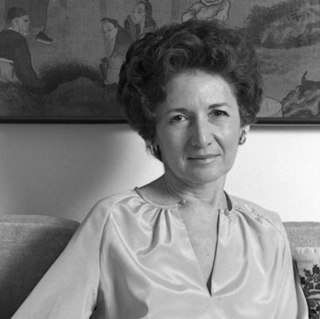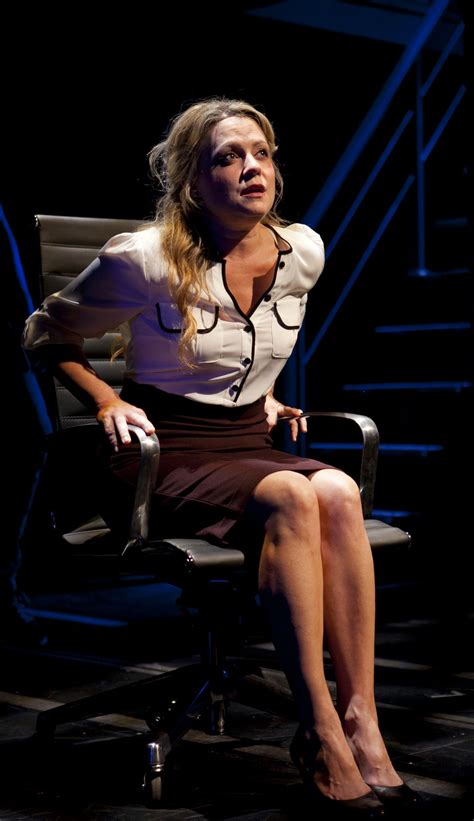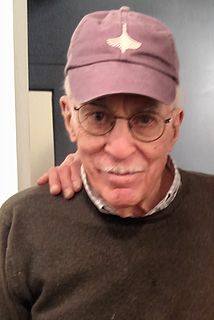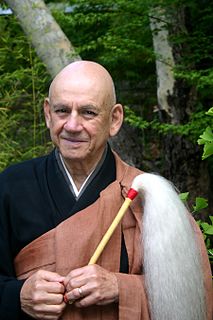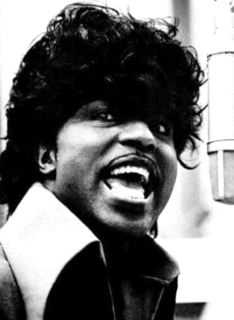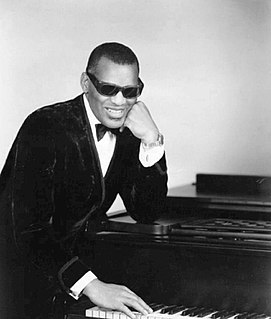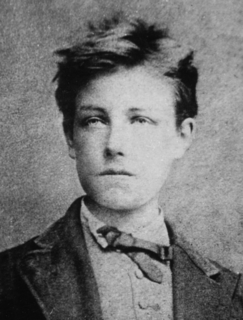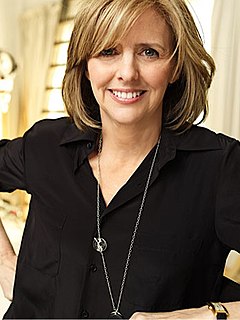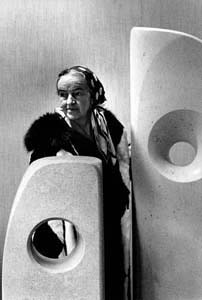Top 394 Rhythms Quotes & Sayings - Page 6
Explore popular Rhythms quotes.
Last updated on December 18, 2024.
There there is nothing like a wilderness journey for rekindling the fires of life. Simplicity is part of it. Cutting the cackle. Transportation reduced to leg - or arm - power, eating irons to one spoon. Such simplicity, together with sweat and silence, amplify the rhythms of any long journey, especially through unknown, untattered territory. And in the end such a journey can restore an understanding of how insignificant you are -- and thereby set you free.
The creative force in man recognizes and records these rhythms with the medium most suitable to him, the object, or the moment, feeling the cause, the life within the outer form. Recording unfelt facts, acquired by rule, results in sterile inventory. To see the Thing Itself is essential: the quintessence revealed direct without the fog of impressionism - the casual noting of the superficial phase, a transitory mood.
I've spent my life capturing beautiful images. And whether in wilderness or in the downtown of a giant city, I find connections, universal rhythms, patterns and beauty that I recognize as a part of me, a part of all of us that celebrates life. It's my great pleasure to share with you that energy which inspires me; this great visual beauty of our world.
The first thing that strikes you about Timothy Murphys verse is the palpable texture of his line - that sound of sense practised by that other American poet-farmer, Robert Frost. And just as Murphys ear is trained on the rhythms of local speech and classical epigram, his eye holds fast on the image. This is an undeluded vision, sometimes bleak, often funny, and never less than painstakingly crafted.
When we travel for research our strategy is to simply move from kitchen to kitchen. It's truly a wonderful way to travel - food shopping, cooking and eating in one home for lunch and then another for dinner. The process of cooking takes us immediately into the rituals and rhythms of daily life and also places us firmly in the position of learners. We were meet with incredible generosity by all of the families we ate with.
...yesterday and today and tomorrow are not an arrow that shoots from past to present to future; rather all tenses, and sleeping and waking, mix and cohabit in an atemporal duration beyond clocks and calendars. The Aboriginal world began long ago when the Ancestors sang in Dreamtime the cosmic rhythms that give shape to the things we see, and it is the beginning right now, when a living Tiwi sings the Dream songs that continue, or are, the world.
What I desire of a poem is a clear understanding of motive, and a just evaluation of feeling A poem in the first place should offer us a new perception..bringing into being a new experience Verse is more valuable than prose for its rhythms are faster and more highly organised and lead to greater compexity.
When you're writing TV or movies your vernacular is time, it's all based on rhythms, a character takes a beat or two characters have a moment, like everything is about time. And when you're writing a comic, everything is about space. It's how many panels to put on a page, when should you do a full page splash, what is the detail that you see in any particular image.
Poetry transcends the nation-state. Poetry transcends government. It brings the traditional concept of power to its knees. I have always believed poetry to be an eternal conversation in which the ancient poets remain contemporary, a conversation inviting us into other languages and cultures even as poetry transcends language and culture, returning us again and again to primal rhythms and sounds.
Waiting is a large part of living. Great, passive, negative chunks of our time are consumed by waiting, from birth to death. Waiting is a special kind of activity - if activity is the right word for it - because we are held in enforced suspension between people and places, removed from the normal rhythms of our days and lives.
In my opinion what distinguishes the Bible from the other books is its sense of time. Its first concern is to establish a calendar. Then it traces a genealogy. It imposes rhythms, it orders, it operates, it does not abandon the earth where its destiny must be fulfilled and whose own destiny must be fulfilled by it. Its history will be that of men and not of idle gods. The whole spirit must become incarnate and explore the possible.
Reading, because we control it, is adaptable to our needs and rhythms. We are free to indulge our subjective associative impulse; the term I coin for this is deep reading: the slow and meditative possession of a book. We don't just read the words, we dream our lives in their vicinity. The printed page becomes a kind of wrought-iron fence we crawl through, returning, once we have wandered, to the very place we started.
Nature is the clearest source of solitude. The greatness of nature can overwhelm the insignificant chatter by which we measure most of our days. If you have the wisdom and the courage to go to nature alone, the larger rhythms, the eternal hum, will make itself known all the sooner. When you have found it, it will always be there for you. The peace without will become the peace within, and you will be able to return to it in your heart wherever you find yourself.
And there's wordplay and there's rhythms and you have to be able to get the poetry out of it. You have to be able to sell my jokes. And if you're talking about somebody like Sam Jackson, they do that. Sam Jackson can do that. Sam Jackson can turn it into the spoken word that it was always meant to be and he can sell my jokes. And Christopher Walken can do it and a lot of people can do it, all right.
Usually, the way I write is to sit down at a typewriter after that year or so of what passes for thinking, and I write a first draft quite rapidly. Read it over. Make a few pencil corrections, where I think I've got the rhythms wrong in the speeches, for example, and then retype the whole thing. And in the retyping I discover that maybe one or two more speeches will come in. One or two more things will happen, but not much.
...for most people in the [Jewish] Ghetto [of Warsaw] nature lived only in memory -- no parks, birds, or greenery existed in the Ghetto -- and they suffered the loss of nature like a phantom-limb pain, an amputation that scrambled the body's rhythms, starved the senses, and made basic ideas about the world impossible for children to fathom.
The Tao never does anything, yet through it all things are done. If powerful men and women could venter themselves in it, the whole world would be transformed by itself, in its natural rhythms. People would be content with their simple, everyday lives, in harmony, and free of desire. When there is no desire, all things are at peace.
A disruption of the circadian cycle—the metabolic and glandular rhythms that are central to our workaday life—seems to be involved in many, if not most, cases of depression; this is why brutal insomnia so often occurs and is most likely why each day’s pattern of distress exhibits fairly predictable alternating periods of intensity and relief.
I'm finding none. It's the same thing! It's about rhythms and beats and what connects to what. It's the same; the song has to connect to the story to get from this point to that point. So even though there may not be music in the show there is. You have to follow this delicate score. I don't think there's a huge difference. But, I don't have sore muscles! I'm not sore from dancing all day!
In this world, there are two times. There is mechanical time and there is body time." "They do not keep clocks in their houses. Instead, they listen to their heartbeats. They feel the rhythms of their moods and desires." "Then there are those who think their bodies don't exist. They live by mechanical time. They rise at seven o'clock in the morning. They eat their lunch at noon and their supper at six. They arrive at their appointments on time, precisely by the clock.
Water in swimming pools changes its look more than in any other form its colour can be man-made and its dancing rhythms reflect not only the sky but, because of its transparency, the depth of the water as well. If the water surface is almost still and there is a strong sun, then dancing lines with the colours of the spectrum appear everywhere.
Baseball's time is seamless and invisible, a bubble within which players move at exactly the same pace and rhythms as all their predecessors. This is the way the game was played in our youth and in our fathers' youth, and even back then ... there must have been the same feeling that time could be stopped.
With the rise of industrialism, words like 'normal' and 'defective,' words that had once only been used to refer to things, began to be used to refer to people. ... In the industrial age, a new degree of uniformity was expected of people. The rhythms and pacing of life could no longer be organic. People became expected to function like things.
[T]he truth is that fullness of soul can sometimes overflow in utter vapidity of language, for none of us can ever express the exact measure of his needs or his thoughts or his sorrows; and human speech is like a cracked kettle on which we tap crude rhythms for bears to dance to, while we long to make music that will melt the stars.
I grew up watching Gregory Hines banging out rhythms like drum beats, and Jimmy Slyde dancing these melodies, you know, bop-bah-be-do-bap, not just tap-tap-tap. Everyone else was dancing in monotone, but I could hear the hoofers in stereo, and they influenced me to have this musical approach towards tap.
Swing is extreme coordination. It's a maintaining balance, equilibrium. It's about executing very difficult rhythms with a panache and a feeling in the context of very strict time. So, everything about the swing is about some guideline and some grid and the elegant way that you negotiate your way through that grid.
So a lot of people who work rotating shifts and they work at night, their bodies are set to want to be awake during the day and sleep at night. So there are some people who have a lot of trouble adjusting their rhythms and they have trouble working the night shift, they're sleepy, they're drowsy driving home.
The way we move within time is a kind of dance. We are always keeping time within one rhythm or another. Music, of course, is exemplary. One reason we love music so much is that it's so complete and the notes harmonize with one another in time to make a beautiful, ideal statement; not like our daily life where the rhythms are more subtle or hard to find or are constantly being interrupted or changed in ways that aren't so easy to handle.
I work on two levels. I occupy my conscious mind with things to do, lines to draw, movements to organize, rhythms to invent. In fact, I keep myself occupied. But that allows other things to happen which I'm not controlling... the more I exercise my conscious mind, the more open the other things may find that they can come through.
I’m just a storyteller, and the cinema happens to be my medium. I like it because it recreates life in movement, enlarges it, enhances it, distills it. For me, it’s far closer to the miraculous creation of life than, say, a painting or music or even literature. It’s not just an art form; it’s actually a new form of life, with its own rhythms, cadences, perspectives and transparencies. It’s my way of telling a story.
Each of us has the power and responsibility to heal ourselves, to be our own medicine man or woman. Awakening our innate powers of being, loving, knowing, seeing, and healing involves ongoing work at all levels and in all dimensions of our self. Exploring the range of rhythms and emotions, achieving insights into our conditioning and ego, moving through the energy levels of spirit – these are all activities to be integrated into our daily lives.
In a contest between new technology and old ways of life, it is the traditional rhythms that will hold. Traditional societies make up more than two-thirds of the world, the two-thirds that will not be going online to "save" time but will remain wedded to the knowledge that if the bus doesn't come that day, it will come someday. After all, there is nothing but time.
I have written it before and am not ashamed to write it again. Without Wodehouse I am not sure that I would be a tenth of what I am today -- whatever that may be. In my teenage years, his writings awoke me to the possibilities of language. His rhythms, tropes, tricks and mannerisms are deep within me. But more than that, he taught me something about good nature. It is enough to be benign, to be gentle, to be funny, to be kind.
Demagogues are so easy to identify. They gesture a lot and speak with pulpit rhythms, using words that ring of religious fervour and god-fearing sincerity. Sincerity with nothing behind it takes so much practice. The practice can always be detected. Repetition. Great attempts to keep your attention on words.
After watching a couple of live performances of bands like Nirvana, I was really excited and inspired by how raw and powerful it was. I wanted to at least aim in that direction with the guitar and do my own version of it. I know it doesn't really sound like that on the other end, but I wanted guitar, heavy rhythms, and singing to be the stamp of the whole thing.
[Miranda Hentoff] was teaching once at Lincoln Center, and the hall was full of other professionals - musicians, professors, teachers. And she was explaining how [Béla] Bartok composed his second piano concerto. And she explained how the music was interwoven with the rhythms and what he had in his mind. And I was just stunned. This is a kid who used to work - on a piano with a cracked keyboard.
My true belief about Rock 'n' Roll--and there have been a lot of phrases attributed to me over the years--is this: I believe this kind of music is demonic. ... A lot of the beats in music today are taken from voodoo, from the voodoo drums. If you study music in rhythms, like I have, you'll see that is true. I believe that kind of music is driving people from Christ. It is contagious
RIE emphasizes the benefits of infants spending peaceful, uninterrupted time following their biological rhythms of falling asleep when sleepy and eating when hungry, rather than their having to adjust too soon to external schedules and unrealistic expectations. First, we have to let the child develop his own rhythm; and then later he can adjust more into adult life.
His (Swami Vivekananda) words are great music, phrases in the style of Beethoven, stirring rhythms like the march of Handel choruses. I cannot touch these sayings of his, scattered as they are through the pages of books, at thirty years' distance, without receiving a thrill through my body like an electric shock. And what shocks, what transports, must have been produced when in burning words they issued from the lips of the hero!
I never considered myself part of rock 'n' roll. My stuff was more adult. It was more difficult for teenagers to relate to; my stuff was filled with more despair than anything you'd associate with rock 'n' roll. Since I couldn't see people dancing, I didn't write jitterbugs or twists. I wrote rhythms that moved me. My style requires pure heart singing.
For a long time I found the celebrities of modern painting and poetry ridiculous. I loved absurd pictures, fanlights, stage scenery, mountebanks backcloths, inn-signs, cheap colored prints; unfashionable literature, church Latin, pornographic books badly spelt, grandmothers novels, fairy stories, little books for children, old operas, empty refrains, simple rhythms.
A writer's work has to take account of many rhythms: Vulcan's and Mercury's, a message of urgency obtained by dint of patient and meticulous adjustments and an intuition so instantaneous that, when formulated, it acquires the finality of something that could never have been otherwise. But it is also the rhythm of time that passes with no other aim than to let feelings and thoughts settle down, mature, and shed all impatience or ephemeral contingency.
Sometimes when I'm writing I'll play Cole Porter, just because the rhythms and the lyrics are so perfect that it's like having a smart partner in the room. I have a huge collection of music that I listen to when I'm writing, and I also prepare a lot of music before I start directing. I put it all onto an iPod that I have with me on the set. It's helpful to the actors, because for an emotional scene, I'll play it and say, this is how it feels, to keep us in the zone.
You have to seduce the reader, manipulate their mind and heart, listen to the music of language. I sometimes think of prose as music, in terms of its rhythms and dynamics, the way you compress and expand the attention of a reader over a sentence, the way the tempo pushes you towards an image or sensation. We want an intense experience, so that we can forget ourselves when we enter the world of the book. When you are reading, the physical object of the book should disappear from your hands.
I remember when I wrote a piece, "Blood on the Fields," it was a while ago, it was about slavery and about two characters, and I studied so much of music, I would always go back to the original documents, and as much as I can get original chants and slave chants and different type of beats and rhythms and ring shout.
This song of the waters is audible to every ear, but there is other music in these hills, by no means audible to all. On a still night, when the campfire is low and the Pleiades have climbed over rimrocks, sit quietly and listen, and think hard of everything you have seen and tried to understand. Then you may hear it - a vast pulsing harmony - its score inscribed on a thousand hills, its notes the lives and deaths of plants and animals, its rhythms spanning the seconds and the centuries.
